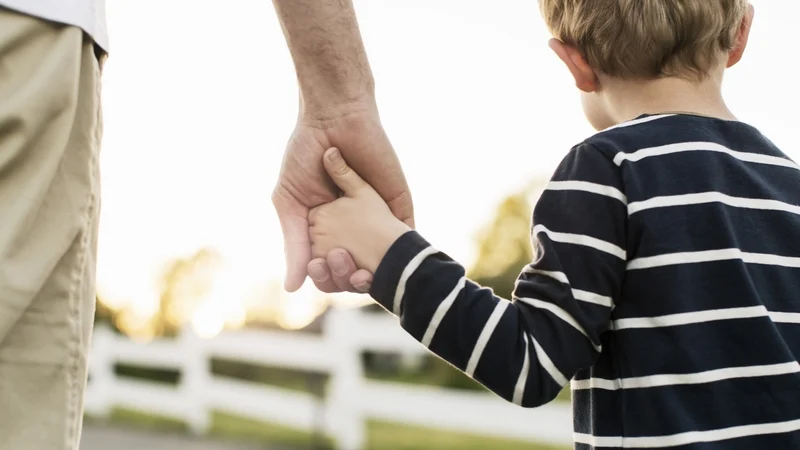14% of children in Ireland between nine months and five years do not live with their fathers full-time, according to research published by the Economic and Social Research Institute.
By the age of nine, the figure rises to 18%, according to the ESRI.
Using data from the Growing Up in Ireland study, which is produced in partnership with the Department of Children, it found that households with parental separation were more disadvantaged in profile.
Where fathers were not resident in the home, mothers were “much younger”, tended to have lower levels of education and were more likely to live in urban areas.
It found that the fathers had lower educational levels, higher unemployment levels and greater financial difficulties.
Mothers reported that half of fathers who were not resident at home saw their babies or toddlers several times a week.

Contact was somewhat less frequent as children made the transition to school, although around a third of five-year-olds and nine-year-olds saw their fathers at least a few times a week.
Just over a quarter of “non-resident fathers” had little to no contact with their children at each age examined.
Although the fathers surveyed who were not living with their children tended to be actively involved in their children’s lives, around half of them said they would like more frequent contact with their child.
Parental accounts of the father’s frequency of contact differed. Mothers reported lower levels of contact than fathers did.
From the child’s perspective, just over half (53%) reported getting on “very well” with their father at age nine, which indicated the importance of their father in their lives according to the report.
Over a third (38%) of separated mothers received regular payments from the non-resident father, while 11% received payments on “an ad hoc basis”.
The ESRI noted the importance of these payments for “a significant group of families”.
In order to conduct the research, mothers were asked to help access the fathers by providing contact details or passing on information.
When the children were between nine months and three years old, around a third of mothers were willing to give permission for fathers to be contacted. This dropped to just over a quarter when the child was aged nine.
In order to get a comprehensive picture of the range of influences on the lives of children, it required input from parents who were not living with them according to researchers.
“Parents can differ in their perceptions of the father-child relationship, so capturing both perspectives is important,” according to co-author of the report Emer Smyth.
Fathers who were in more frequent contact with their child were more likely to complete the survey.
Of the fathers who were contacted when their child was aged three, 35% completed the survey. However, the response rate fell to 14% when the child was aged nine.
Separated parents said they would be more likely to take part in research if its purpose and how the information would be used was made very clear, according to co-author Merike Darmody.















